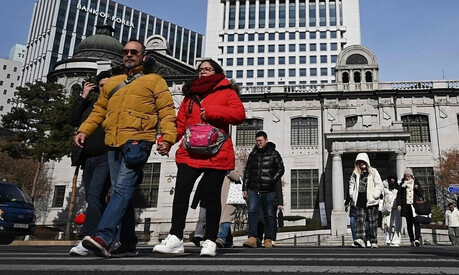
A controversy is brewing over claims that Itaipu Binacional (hereinafter referred to as Itaipu), a joint hydroelectric power plant between Paraguay and Brazil, suffered massive losses due to its failure to adequately respond to the depreciation of the Brazilian Real. Economist Gladys Benegas, former financial director of Itaipu, recently stated in a media interview, "It appears Itaipu did not properly analyze the decline in the financial value of the Real," strongly criticizing that "this led to exchange rate losses against the dollar."
According to Pedro Ferreira, former president of the National Electricity Administration (ANDE), Itaipu recorded a loss of US$209 million (approximately ₩280 billion) last year due to the devaluation of the Real. This is analyzed to have occurred because over 90% of Itaipu's cash assets were deposited in Brazilian Reais.
Economist Benegas pointed out, "The occurrence of exchange losses means there was already a loss," and added, "Itaipu acknowledges this in its financial statements but does not admit to poor financial management." She strongly criticized this situation, likening it to the English term 'oversight,' saying, "In short, they were asleep or fell asleep," and questioned, "How could Itaipu be so helpless against these exchange rate issues?"
She explained, "In this case, they should have compared how much the funds deposited in the Brazilian financial system were worth when converted to dollars, and how much they would have been worth when converted to dollars in Paraguay." She continued, "Since this deposit was made in Reais, as all investors know, not only the interest rate but also the possibility of currency devaluation should have been considered. It's problematic that they only looked at the interest rate of their own currency without adhering to basic principles in the foreign exchange market."
Dr. Benegas also mentioned, "The Real deposit seems to have been made by someone with a lack of understanding of how the financial system works," and emphasized, "Considering that Itaipu employees couldn't have been unaware of these basic concepts, the fact that such massive exchange losses occurred is very unusual."
She compared the foreign exchange market to general commodity markets like rice or beans, stating, "They did not properly analyze the value of the deposited currency, the Real, and did not carefully judge whether it was reasonable to keep the funds in Reais or whether they should have converted to dollars as per good financial management practices."
Meanwhile, economist Benegas mentioned that there are no legal restrictions on depositing Itaipu's funds in Paraguay and Brazil under equal conditions, but she expressed concerns about the safety of depositing these funds in Paraguay. According to Itaipu's 2024 financial statements, out of a total of US$997.45 million last year, US$906.859 million was deposited in Brazilian Reais.
She argued, "The equitable deposit of funds between Paraguay and Brazil is a matter that should be negotiated," and asked, "If depositing in Paraguay is reasonable, what is the reason for not doing so?" She added that while Itaipu's debt (until 2023) was the reason in the past, those basic conditions no longer exist.
Dr. Benegas also emphasized the need to confirm "what Itaipu's financial safeguards are to safely deposit funds in either location without the impact of bank failures or a weak financial system," along with conditions that allow for depositing funds at the same ratio.
Economist Gladys Benegas's claims suggest that there may be serious problems with Itaipu's fund management system. The fact that Itaipu, which holds massive assets, failed to adequately address basic exchange rate risks can be seen as exposing vulnerabilities in its financial management.
In the future, Itaipu will likely need to re-evaluate its asset management strategy and prepare countermeasures against exchange rate fluctuation risks. Furthermore, the Paraguayan government needs to strengthen negotiations with Brazil for the efficient and safe management of Itaipu's funds.
[Copyright (c) Global Economic Times. All Rights Reserved.]





























